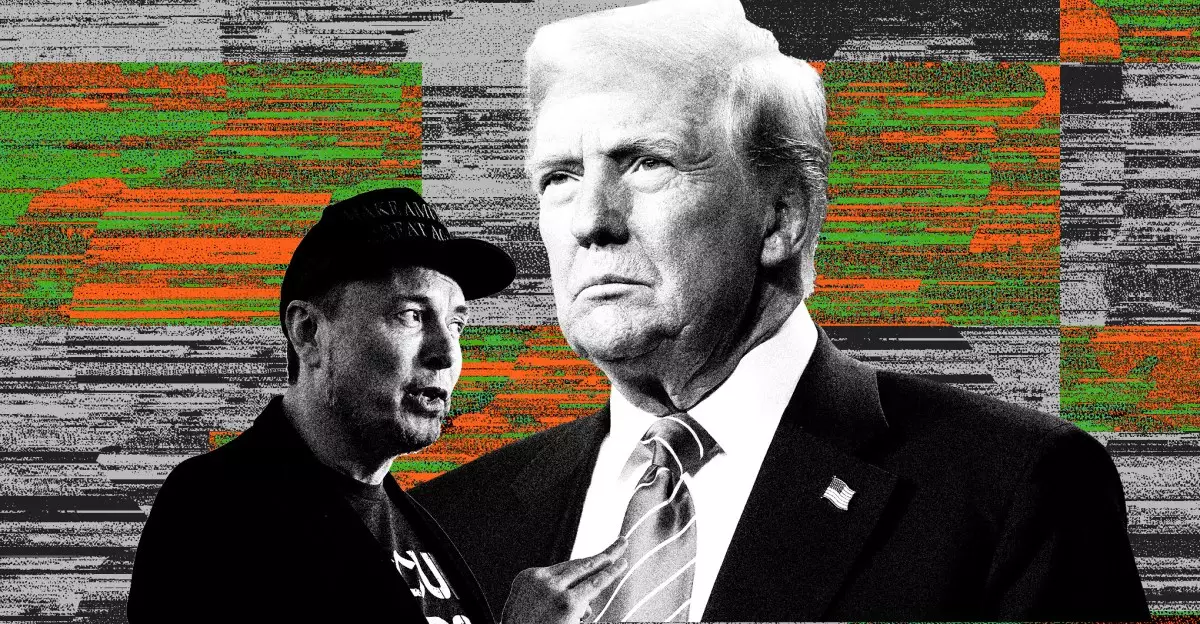In the wake of the January 6, 2021, Capitol riots, the dynamics of social media governance drastically changed. Platforms like Twitter, now rebranded as X under Elon Musk, faced significant scrutiny regarding their policies on account suspensions, particularly for high-profile figures like former President Donald Trump. These decisions not only impacted the platforms’ public image but also ignited legal challenges that brought forth questions about the extent of power social media companies possess in regulating speech.
Trump’s ban was contentious, leading him to initiate lawsuits against several tech giants, including Twitter, Meta, and Google. His contention was that the bans represented an infringement on his First Amendment rights. However, courts have struggled to categorize social media companies as state actors, as highlighted by dismissals of his lawsuits. Trump’s ongoing legal endeavors indicate his determination to challenge the status quo of social media regulation and accountability.
The Settlement and Its Implications
Recent reports have surfaced indicating that Musk’s X has agreed to pay Trump approximately $10 million to settle claims related to his account suspension. This precedent not only signals a willingness from Musk’s team to reach out-of-court agreements but also raises concerns about the implications of financial settlements on the platform’s policy-making. Critics might argue that such settlements could lead to a slippery slope where financial considerations trump ethical governance in social media spaces.
Moreover, the potential payout and its connection to Trump’s political ambitions—the previously reported $250 million Musk allegedly spent in support of Trump’s election—could paint a troubling picture of the intertwining relationships between politics, finance, and media. The implications of this settlement extend beyond Trump, potentially influencing how other individuals perceive the power they wield over media platforms and their willingness to pursue similar claims.
Meta’s Move: Settling to Avoid Legal Precedents
Interestingly, around the same time as X’s settlement with Trump, Meta opted to settle its own case for $25 million. This reflects a strategic choice by major tech players to mitigate risks that legal battles could impose on their operational frameworks. By settling, platforms may seek to avoid court rulings that could redefine their responsibilities and rights regarding user content management.
These legal patterns bring into focus the ambiguous nature of responsibility that tech corporations hold. As legal teams work meticulously behind the scenes, public discourse is often left in a murky gray area regarding what constitutes free speech against harmful rhetoric. As a society, we are grappling with the ramifications of these decisions—how far should platforms go in policing content, and how might their decisions reflect on broader societal values?
The unfolding drama of Trump’s legal battles against social media giants encapsulates a significant moment in the evolution of digital communication and governance. As platforms navigate legal complexities and settle high-stakes lawsuits, the broader conversations about accountability, free speech, and the influence of money in politics will undoubtedly shape the future landscape of social media. These events urge us to consider not just the legal implications but to reflect on the ethical responsibilities that come with wielding such profound influence over public discourse. As this saga continues, it is clear that the intersection of law, technology, and society will remain a hotbed of discussion and debate for years to come.

